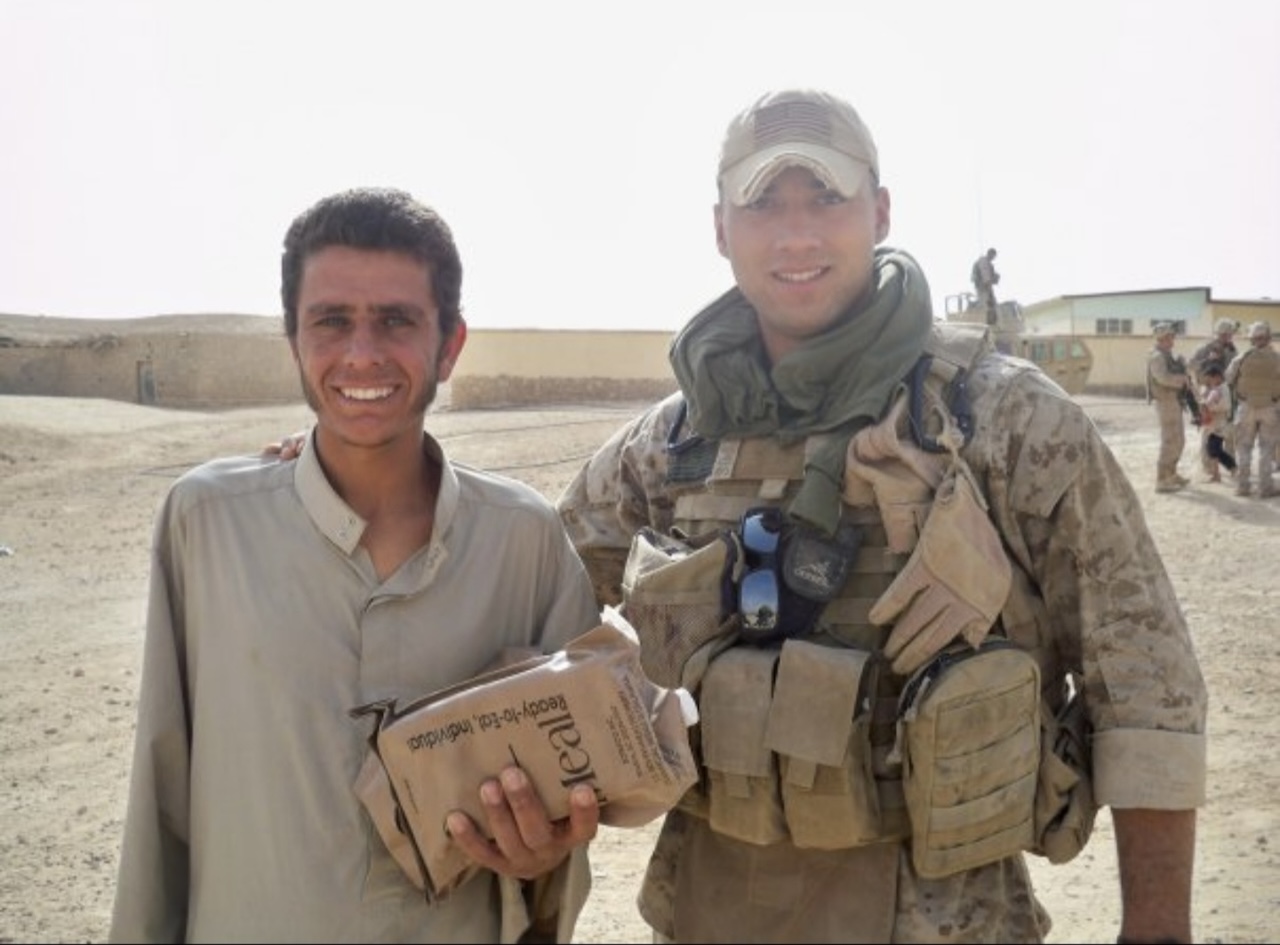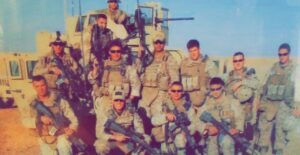Main Street News

Veteran Profile: Andy Anderson
In honor of Veteran’s Day on November 11, we are profiling veterans from around the area all month long to honor their service. This installment features Andy Anderson, a Marine veteran.
In 2003, at 17 years old, Andy Anderson gave up three sports scholarships that would provide him with a full ride to college and instead, chose to enlist in the Marines. “It was just after 9/11 and I remember looking at a lot of my friends in high school and they were saying, ‘no, we’re not doing this.’ And I thought to myself, ‘What kind of people are they?’ I’m doing my country a service and I felt so much pride for that,” he said.
Andy, who grew up in Delhi, NY, and now lives in Milan, NY, served in the initial push into Fallujah, Afghanistan in 2003 and was there until 2004. After his first deployment, he came back home to the United States to participate in training to become a scout sniper.
Throughout his ten years of service, he served in three combat tours that took him to places like Afghanistan, Iraq, Norway, Africa, Germany, and Japan.
Why the Marines? Andy joked that it’s because they “have the best uniforms.”
“The truth is that the Marines are known as ‘The Few. The Proud.’ and I said ‘If they’re number one, then I’m gonna be number one too.’”
On the battlefield
One of the things that Andy remembers most from his service is the people who live in the places that he was deployed to. “We have this idea that Americans go overseas and everybody hates us, and it’s not that way. My most memorable moments were being with the kids in Afghanistan and Iraq and giving them things they’ve never had before, like a Reese’s. You should’ve seen their faces! Those are some of my good memories.”
 In regards to his multiple deployments, Andy put it aptly: “They were all hot, they all sucked, and we got shot at all the time.”
In regards to his multiple deployments, Andy put it aptly: “They were all hot, they all sucked, and we got shot at all the time.”
Andy has witnessed his fair share of danger and violence first hand, and as a scout sniper, he’s witnessed it through a scope from a mile away.
“Most of what I did was sit and wait for the bad guys. We did a lot of kicking doors in and room clearing. To put it bluntly, I went through different kinds of reconnaissance training to become a scout sniper, and that meant that I got really good at killing the bad guys from a mile away.”
Life after service
Andy said that he wanted to serve for 30 years, but he got medically discharged in 2014 as a Sergeant at the age of 27. Now, he works as a teaching assistant at Seymour Smith Intermediate Learning Center in Pine Plains, NY, and coaches more sports than you can count through both the school district and the town recreation program.
His work with young children is one of the things he values most.
“I like to say that I have 240 kids in my life. The military gave me that positive mentality, and I try to pass that on to the kids. I want them to know that they can do everything, but that they’re going to have discipline while doing it,” he said. “They have to speak confidently, hold their chest out, and ask questions. I want them to know that I’m always going to have their back.”
How did the military impact him? “Let’s start with my voice: It’s made it very loud,” he laughed. “It added an amount and a specific type of confidence that I don’t think you can get anywhere else. If I can go overseas as a 17 year old kid and lead men into battle, then I can do anything.”
For Andy, coming home from combat was difficult because of the slow pace of civilian life.
“There’s no after-action report with veterans. There’s no ‘We need to do XYZ with you,’ it’s just try not to drink, don’t get as many divorces, and here’s your money,” he said. “The worst part was not being taught how to be a civilian again. They spend a lot of time turning us into machines, but they don’t spend nearly enough time trying to turn us back into human beings.”

Additionally, Andy’s mother passed away while he was at bootcamp, which meant he returned home with no family to welcome him. As such, he moved in with a friend who lived in Chatham, NY and “developed a new family.”
Naturally, it’s difficult to communicate his service with friends and family. Can those of us who haven’t served in combat ever truly understand what it’s like? While we discussed this, he rolled up his sleeve to show me a tattoo of 17 stick figures on the inside of his forearm.
“I remind myself every day that I’ve killed people so that the children that I work with on a daily basis can be able to learn, eat, sleep, and exist in peace and in freedom. That is with me every day. Sometimes there are people who have to do the ugly so that the rest of us can sleep at night. That’s what I did. I’m the Boogeyman.”
While he doesn’t necessarily want civilians to see the forthright brutality of war, he does wish that there were more opportunities for people to learn more about what’s going on if they want to.
“People don’t know what’s going on unless the media gives them something. For people who want to know more about what’s going on, I wish there were more documentaries or more sources for people to look to.”
To learn more about the U.S. Marines, visit their website here.


